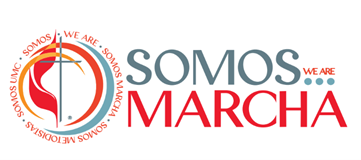AN OPEN LETTER FROM LYNC TO THE UNITED METHODIST CHURCH
March 26, 2020 – Media Contact: Ann Craig, Media Consultant 917-280-2968 craignewyork@gmail.com AN OPEN LETTER FROM LYNC TO THE UNITED METHODIST CHURCH Beloved, as we grapple
Cuarentena en Cuaresma / Quarentena na Quaresma
¿Quién nos podrá separar del amor de Cristo? ¿El sufrimiento, o las dificultades, o la persecución, o el hambre, o la falta de ropa, o el peligro, o la muerte violenta?
IESDG STATEMENT ON COVID-19 VIRUS AND XENOPHOBIA
A Statement from the Inter-Ethnic Strategic Development Group (IESDG), a coalition represented by the five racial ethnic caucuses of the United Methodist Church. IESDG unequivocall
